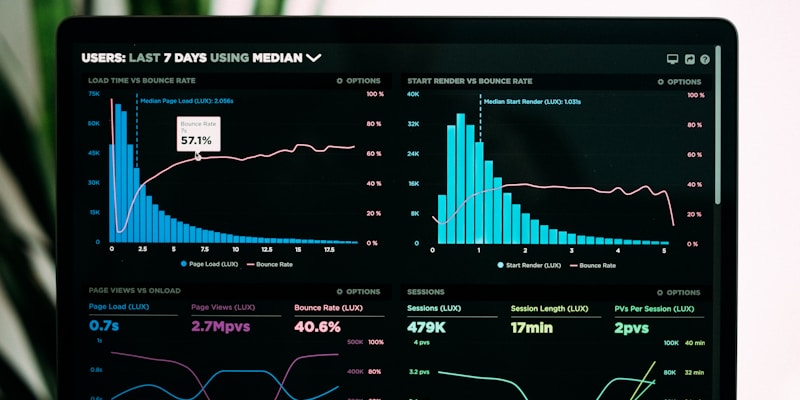FBR's E-Invoicing System Explained: What It Is and How It Will Affect Businesses in Pakistan
FBR's E-Invoicing System Explained: What It Is and How It Will Affect Businesses in Pakistan
Pakistan's Federal Board of Revenue (FBR) has launched its Digital Invoicing System, marking a revolutionary shift toward a documented economy. This mandatory electronic invoicing platform is transforming how businesses generate, report, and track their sales transactions in real-time.
If you're a business owner in Pakistan wondering what this means for your operations, you're not alone. The FBR's e-invoicing system represents one of the most significant changes to Pakistan's tax landscape in recent years, affecting everything from small retailers to large corporations.
This comprehensive guide breaks down everything you need to know about the FBR Digital Invoicing System, based on official notifications and implementation guidelines from the Federal Board of Revenue.
What is FBR's E-Invoicing System?
The FBR Digital Invoicing System is an automated electronic invoicing platform that enables registered businesses to generate and report electronic sales tax invoices in real-time directly to FBR's centralized digital portal. Under this system, every business transaction must be recorded digitally and transmitted to the FBR through secure channels.
Here's how it works in simple terms: When you make a sale, instead of just issuing a traditional paper invoice, you must generate a digital invoice that automatically gets sent to the FBR's system. The FBR then validates this invoice and assigns it a unique identification number and QR code, creating an unbreakable digital trail of your business transactions.
Key Features of the System:
- Real-time invoice submission to FBR's IRIS portal
- Automatic generation of unique FBR invoice numbers
- QR code creation for instant verification
- Secure data transmission and storage
- Integration with existing business software
This system is designed to eliminate fake invoices, reduce tax evasion, and create complete transparency in Pakistan's business ecosystem.
Legal Framework: The Rules You Must Follow
The FBR Digital Invoicing System operates under strict legal requirements established through multiple official notifications from the Federal Board of Revenue.
Primary Legal Authority: The system is mandated under S.R.O. 709(I)/2025 and S.R.O. 69(I)/2025, making electronic invoicing legally binding for specified business categories.
Sales Tax Rule 150Q specifically requires all registered businesses to establish IRIS integration for real-time invoice validation and submission. This means if your business is registered for sales tax, compliance isn't optional—it's a legal requirement.
What the Law Requires:
- All sales or supplies must be conducted through the e-Invoicing system
- Real-time or near real-time reporting of invoices to FBR
- Electronic storage and archiving of invoices for six years
- Secure transmission of invoice data to receive unique FBR invoice numbers
Scope of Application: Currently, e-invoicing in Pakistan applies primarily to the sale and purchase of goods. However, in some regions like Islamabad, both goods and services are subject to mandatory e-invoicing requirements.
Source: Federal Board of Revenue Official Notifications - S.R.O. 709(I)/2025 and Sales Tax Rules, 2006
Implementation Timeline: When Your Business Must Comply
The FBR has established a phased implementation schedule to help businesses transition smoothly to the digital invoicing system. Understanding these deadlines is crucial for avoiding penalties and ensuring compliance.
Phase 1: September 1, 2025
- Who's Affected: Public companies, importers, and companies with annual turnover exceeding PKR 1 billion
- Registration Deadline: August 10, 2025
- Testing Deadline: August 25, 2025
- Go-Live Date: September 1, 2025
Phase 2: October 1, 2025
- Who's Affected: Companies with turnover between PKR 100 million and PKR 1 billion, and individuals/associations with turnover above PKR 100 million
- Registration Deadline: September 10, 2025
- Testing Deadline: September 30, 2025
- Go-Live Date: October 1, 2025
Phase 3: November 1, 2025
- Who's Affected: Companies with turnover not exceeding PKR 100 million
- Registration Deadline: October 10, 2025
- Testing Deadline: October 30, 2025
- Go-Live Date: November 1, 2025
Phase 4: December 1, 2025
- Who's Affected: All other registered persons not covered in earlier phases
- Registration Deadline: November 10, 2025
- Testing Deadline: November 30, 2025
- Go-Live Date: December 1, 2025
Recent Updates: The FBR has provided several extensions throughout 2025 to help businesses prepare adequately. Through Notification S.R.O. 1413(I)/2025 dated August 1, 2025, the FBR officially granted additional time for corporate and non-corporate taxpayers to integrate with the digital invoicing platform.
Important Note: These deadlines are firm, and the FBR has made it clear that no further extensions will be granted. Businesses must complete their integration by the specified dates to avoid penalties.
Action Required: If you haven't started the registration process yet, contact your preferred integration partner or PRAL immediately to begin the setup process.
Source: FBR Notification S.R.O. 1413(I)/2025 and official FBR announcements
Who Must Use the E-Invoicing System?
Not every business in Pakistan is required to implement the digital invoicing system immediately, but the FBR has clearly defined which businesses must comply based on their size, structure, and revenue.
Mandatory Compliance Categories:
Large Corporations (Immediate Requirement - September 2025):
- All public companies listed on Pakistan Stock Exchange
- Companies with annual turnover exceeding PKR 1 billion
- Major importers and international trading companies
- Large manufacturing units
Small and Medium Enterprises (December 2025):
- All sales tax registered businesses regardless of size
- Manufacturers, wholesalers, distributors, and retailers
- E-commerce businesses and online sellers
- Service providers in specified regions
Exempt Categories (Currently):
- Unregistered small traders below the sales tax threshold
- Agricultural businesses (specific exemptions apply)
- Certain service providers outside designated areas
Special Considerations for E-commerce: Online businesses and e-commerce platforms face particular attention under the new system. Whether you're selling through your own website, social media, or platforms like Daraz, if you're registered for sales tax, you must integrate with the FBR system.
How to Check if Your Business is Affected:
- Review your sales tax registration status
- Calculate your annual turnover for the last fiscal year
- Check if your business category falls under mandatory compliance
- Contact FBR helpline (051-111-772-772) for clarification if needed
Future Expansion: By 2025, the FBR Digital Invoicing system will cover most sectors including retail, wholesale, manufacturing, and services, representing a big step toward a documented economy in Pakistan.
Source: FBR eligibility criteria and Sales Tax Act provisions
How the System Works: Technical Process
Understanding the technical process behind the FBR Digital Invoicing System helps businesses prepare for implementation and ensures smooth daily operations.
Step-by-Step Process:
1. Invoice Generation When you make a sale, your business software generates a digital invoice containing all required information: customer details, product descriptions, quantities, prices, tax calculations, and payment terms.
2. Real-Time Submission The invoice data is automatically transmitted to the FBR's IRIS portal through PRAL's secure API (Application Programming Interface). This happens instantly as the sale is completed.
3. FBR Validation The IRIS system processes the invoice data, validates tax calculations, checks for compliance with FBR requirements, and performs security checks to prevent fraud.
4. Unique Identifier Assignment Upon successful validation, the FBR assigns a unique invoice number (UIN) and generates a QR code that links to the verified transaction in the FBR database.
5. Invoice Completion The validated invoice with its unique FBR number and QR code is returned to your system and can be printed or sent electronically to your customer.
Technical Requirements:
- Stable internet connection for real-time data transmission
- Compatible invoicing software or ERP system
- Secure data encryption protocols
- Backup systems for network outages
Data Security: The FBR has implemented bank-level security protocols to protect business data. All transmissions use encrypted channels, and the system maintains strict access controls to prevent unauthorized use.
Integration Options: Businesses can choose between licensed private integrators or use PRAL's free integration service, depending on their technical needs and budget constraints.
Source: PRAL technical documentation and FBR system specifications
Integration Methods: IRIS and PRAL Systems
The FBR offers two primary integration pathways for businesses to connect with the digital invoicing system, each designed to meet different business needs and technical capabilities.
IRIS Portal Integration
IRIS (Integrated Revenue Information System) is the FBR's official portal for e-invoice submissions in Pakistan. This centralized platform processes all digital invoice data, validates tax calculations, and generates unique FBR invoice numbers for compliance.
Key Features of IRIS:
- Direct connection to FBR's tax database
- Real-time invoice validation and processing
- Comprehensive reporting and analytics tools
- Integration with existing FBR services
- Secure access through dedicated business accounts
PRAL Integration Services
PRAL (Pakistan Revenue Automation Limited) serves as the official IT infrastructure provider for the FBR and offers free integration support to help businesses connect with the IRIS system.
PRAL's Role:
- Provides the secure communication gateway between business software and FBR systems
- Offers free API integration services
- Handles technical support and troubleshooting
- Maintains system uptime and performance standards
- Ensures data security during transmission
Licensed Private Integrators
For businesses requiring customized solutions or additional features, the FBR has approved several licensed integrators who can provide specialized services.
Approved Integration Partners:
- Pakistan Revenue Automation Limited (PRAL) - Free services
- Haball (Pvt) Ltd. - Commercial integration solutions
- EY (Pvt) Ltd. - Enterprise-level implementations
- WebDNAworks (Pvt) Ltd. - Custom software development
Choosing the Right Integration Method:
Use PRAL if:
- You want free integration services
- Your business has standard invoicing requirements
- You prefer official government support
- You have basic technical infrastructure
Use Licensed Integrators if:
- You need customized integration solutions
- Your business has complex ERP systems
- You require advanced features or analytics
- You want dedicated technical support
Source: FBR list of approved integrators and PRAL service descriptions
Business Impact: What Changes for Your Operations
The implementation of FBR's Digital Invoicing System brings significant changes to how Pakistani businesses operate daily, affecting everything from sales processes to financial record-keeping.
Immediate Operational Changes:
Sales Process Transformation Every sale now requires real-time digital processing. Your staff must ensure that each transaction is immediately recorded in the integrated system, eliminating the possibility of offline or manual invoice generation for registered businesses.
Customer Experience Enhancement Customers now receive invoices with QR codes that allow instant verification of transaction authenticity. This builds trust and provides customers with confidence that they're dealing with a compliant, legitimate business.
Record-Keeping Revolution Traditional paper-based filing systems become obsolete. All business records are automatically digitized, stored securely, and easily accessible for auditing or reference purposes.
Long-term Business Benefits:
Enhanced Business Credibility Businesses using the FBR Digital Invoicing System automatically build a professional and transparent image in the market. Every invoice is digitally recorded, making it easier to track business performance and maintain clean financial records.
Reduced Administrative Burden While initial setup requires effort, the long-term result is significantly reduced manual paperwork, automated tax calculations, and streamlined reporting processes.
Better Financial Management Real-time transaction recording provides instant insights into business performance, cash flow, and tax obligations, enabling better decision-making and financial planning.
Competitive Advantage Early adopters gain a competitive edge by demonstrating compliance, transparency, and technological advancement to customers, suppliers, and potential business partners.
Challenges to Prepare For:
Technology Infrastructure Requirements Businesses must invest in reliable internet connectivity and compatible software systems to ensure uninterrupted operations.
Staff Training Needs Employees require training on new processes, software interfaces, and compliance requirements to maintain operational efficiency.
Initial Implementation Costs While PRAL offers free integration, businesses may need to upgrade their existing software or hardware to meet system requirements.
Source: FBR business impact assessments and industry feedback reports
Penalties for Non-Compliance: The Cost of Ignoring the Rules
The FBR has established strict penalties for businesses that fail to comply with the digital invoicing requirements, making non-compliance a costly mistake that can seriously impact your business operations.
Financial Penalties Structure:
Failure to Issue Digital Invoices Businesses that fail to generate or submit digital invoices face a flat penalty of PKR 50,000 or up to 2% of the tax involved in the transaction, whichever amount is greater.
Late Submission or Rejected Invoices If you don't submit invoices on time or if your invoices are rejected due to errors, you'll face a penalty of PKR 25,000 per day until the issues are resolved and proper submissions are made.
Repeated Non-Compliance Businesses that repeatedly fail to comply with the e-invoicing mandate can face temporary suspension of operations. This may include restrictions on issuing invoices, collecting payments, or conducting transactions in the market until full compliance is achieved.
Additional Consequences:
Tax Assessment Adjustments Non-compliant businesses may face adverse tax assessments, with the FBR potentially estimating tax liabilities based on available data rather than actual business records.
Audit and Investigation Triggers Failure to comply with digital invoicing requirements often triggers automatic flags in the FBR system, leading to increased scrutiny and potential comprehensive audits.
Business Registration Issues Persistent non-compliance can result in complications with business license renewals, sales tax registrations, and other regulatory approvals.
Market Reputation Damage In Pakistan's increasingly digital business environment, non-compliance with government digitization initiatives can damage your business reputation with customers and partners.
How to Avoid Penalties:
Immediate Action Steps
- Register with IRIS or approved integrator before deadline
- Complete system testing with sample transactions
- Train staff on new processes and requirements
- Establish backup procedures for technical issues
Ongoing Compliance Measures
- Monitor system performance daily
- Maintain updated software and connectivity
- Keep detailed records of all digital transactions
- Respond promptly to FBR notifications or queries
Source: FBR penalty guidelines and enforcement notifications
Getting Started: Your Step-by-Step Action Plan
Successfully implementing the FBR Digital Invoicing System requires careful planning and systematic execution. Here's your comprehensive roadmap to ensure smooth compliance and avoid last-minute complications.
Phase 1: Assessment and Preparation (Immediate)
Determine Your Deadline Identify which phase applies to your business:
- September 1, 2025: Public companies, importers, or companies with annual turnover exceeding PKR 1 billion
- October 1, 2025: Companies with turnover between PKR 100 million and PKR 1 billion, and individuals/associations with turnover above PKR 100 million
- November 1, 2025: Companies with turnover not exceeding PKR 100 million
- December 1, 2025: All other registered persons
Evaluate Your Current System Assess your existing invoicing software, hardware infrastructure, and internet connectivity. Determine whether your current systems can support real-time digital invoice submission or if upgrades are necessary.
Choose Your Integration Partner Decide between PRAL's free integration services or a licensed private integrator based on your business needs, technical requirements, and budget considerations.
Phase 2: Registration and Setup
Complete Business Registration Register your business in the IRIS portal or with your chosen integration partner. Ensure your business profiles, branch information, and system details are accurate and up to date.
System Integration Work with your technical team or integration partner to connect your invoicing system with the FBR's digital platform. This includes installing necessary software, configuring security protocols, and establishing secure data transmission channels.
Phase 3: Testing and Validation
Connect to Test Environment Use the FBR's testing platform to generate sample invoices and identify any technical issues or validation errors before going live. This step is crucial for preventing problems during actual operations.
Staff Training Program Educate your finance and sales teams on the new processes, ensuring they understand technical requirements, compliance deadlines, and daily operational procedures.
Create Backup Procedures Establish contingency plans for internet outages, system maintenance, or technical difficulties to ensure continuous compliance even during disruptions.
Phase 4: Go-Live and Monitoring
Switch to Live System Transition your invoicing operations to real-time submission before your category's go-live deadline. Monitor the first few days closely to ensure smooth operations.
Ongoing Compliance Monitoring Continuously monitor system performance, compliance status, and any FBR notifications. Address issues immediately to maintain uninterrupted operations.
Support Resources Available:
FBR Technical Assistance
- Helpline: 051-111-772-772
- Email: helpline@fbr.gov.pk
- Digital Invoicing Technical Support: Available through FBR website
Training and Documentation
- Official FBR implementation guides
- Integration partner training programs
- Online tutorials and user manuals
Source: FBR implementation guidelines and business registration procedures
Future of Digital Taxation in Pakistan
The FBR Digital Invoicing System represents just the beginning of Pakistan's comprehensive digital transformation in taxation and revenue collection. Understanding these future developments helps businesses prepare for long-term changes and opportunities.
Expansion of Digital Services
The success of the e-invoicing system will likely accelerate the FBR's broader digitization agenda. Future developments may include expanded coverage to service sectors, integration with provincial tax authorities, and connection with international trade systems.
Enhanced Analytics and Intelligence As the system collects vast amounts of real-time business data, the FBR will develop sophisticated analytics capabilities to detect tax evasion patterns, identify market trends, and provide better taxpayer services.
Integration with Economic Policy The digital invoicing data will provide government policymakers with unprecedented insights into Pakistan's economy, enabling more informed decisions about fiscal policy, business support programs, and economic development initiatives.
Benefits for the Pakistani Economy
Documented Economy Growth The system contributes significantly to Pakistan's transition toward a documented economy, reducing the size of the informal sector and increasing the tax base for government revenue.
Improved Business Environment Digital invoicing creates a more transparent and competitive business environment, where compliant businesses operate on level playing field and consumers can verify transaction authenticity.
International Trade Facilitation Digital invoicing systems facilitate international trade by providing verified transaction records, improving Pakistan's credibility with international partners and potentially reducing trade barriers.
Preparing for Future Changes
Technology Investment Businesses should view current digital invoicing implementation as an investment in future-ready operations, positioning themselves for additional digital taxation developments.
Skill Development Companies should invest in digital literacy training for their staff, ensuring they can adapt to ongoing technological changes in Pakistan's business environment.
Strategic Planning Forward-thinking businesses should incorporate digital compliance requirements into their long-term strategic planning, viewing digitization as a competitive advantage rather than merely a compliance obligation.
Source: FBR strategic planning documents and government digitization initiatives
Your Next Steps: Taking Action Today
The FBR Digital Invoicing System is not just another regulatory requirement—it's a fundamental shift that will define how business operates in Pakistan's digital future. The businesses that embrace this change early will position themselves for success, while those who delay risk facing penalties and competitive disadvantages.
Immediate Actions Required:
If your business falls under the September 2025 deadline, you have limited time remaining. Contact PRAL or your preferred integration partner immediately to begin the registration process. The technical setup and testing phases require several weeks, making early action essential.
For businesses with December 2025 deadlines, use this extra time wisely. Start planning now, evaluate your technical infrastructure, and begin staff training to ensure smooth implementation when your deadline approaches.
Long-term Perspective
View this digital transformation as an investment in your business's future rather than simply a compliance cost. The operational efficiencies, enhanced credibility, and improved financial management capabilities that result from digital invoicing will benefit your business long after the initial implementation challenges are resolved.
Success in Pakistan's Digital Economy
The FBR Digital Invoicing System represents Pakistan's commitment to building a modern, transparent, and efficient tax system. Businesses that adapt successfully to this change will be well-positioned to thrive in Pakistan's increasingly digital economy.
Your compliance with the e-invoicing requirements demonstrates your business's commitment to transparency, legal compliance, and technological advancement—qualities that customers, suppliers, and partners increasingly value in today's business environment.
Stay Informed and Prepared
Tax regulations and digital requirements continue evolving rapidly. Monitor FBR announcements regularly, maintain relationships with your integration partners, and be prepared to adapt to future changes in Pakistan's digital taxation landscape.
The time for action is now. Begin your digital invoicing implementation today and secure your business's place in Pakistan's documented economy.
Sources and Official Information
Primary Government Sources:
- Federal Board of Revenue (FBR): www.fbr.gov.pk
- S.R.O. 709(I)/2025: Digital Invoicing Mandatory Compliance Notification
- S.R.O. 69(I)/2025: Electronic Invoicing Implementation Guidelines
- S.R.O. 1413(I)/2025: Extension of Integration Deadlines (August 1, 2025)
- Sales Tax Rules, 2006 - Rule 150Q: Electronic Invoice Integration Requirements
Technical Implementation Sources:
- IRIS Portal: iris.fbr.gov.pk - Official FBR Integration System
- PRAL Integration Services: Pakistan Revenue Automation Limited Documentation
- FBR Digital Invoicing Technical Assistance: Official support guidelines
Licensed Integration Partners:
- Pakistan Revenue Automation Limited (PRAL): Free integration services
- Haball (Pvt) Ltd.: Commercial integration solutions
- EY (Pvt) Ltd.: Enterprise implementations
- WebDNAworks (Pvt) Ltd.: Custom software development
Verification Sources:
- Dawn News Pakistan: Independent reporting on FBR developments
- Business Recorder: Pakistani business and tax policy coverage
- Express Tribune: Economic and regulatory news
- PropakistanI: Technology and business compliance updates
Contact Information:
- FBR Helpline: 051-111-772-772
- Email Support: helpline@fbr.gov.pk
- Digital Invoicing Technical Support: Available through FBR official website
Legal Disclaimer: This information is based on official FBR notifications and government sources as of September 2025. Digital invoicing regulations and implementation requirements are subject to frequent updates and amendments. This guide provides general information only and does not constitute professional legal or technical advice. For specific business situations involving system integration or compliance issues, consult qualified technical professionals or contact FBR directly through their official helpline.
Accuracy Verification: All regulatory information, deadlines, and technical requirements in this guide have been verified against official FBR sources, government notifications, and authorized integration partner documentation. For the most current information and any recent changes, always refer to the FBR's official website and latest notifications.
Need Help Applying This to Your Situation?
Get personalized guidance from Muhammad Azeem based on your specific tax circumstances.
Muhammad Azeem
With over 40 years of experience in Pakistani tax law and FBR regulations, Muhammad Azeem is a leading tax consultant who has helped thousands of individuals and businesses navigate complex tax situations while maximizing their savings.
Related Topics
Comments (0)
📋 Article Highlights
- Expert analysis & insights
- Practical implementation steps
- Money-saving opportunities
- FBR compliance guidance
More Tax Insights Await
Discover more expert articles to optimize your tax strategy









